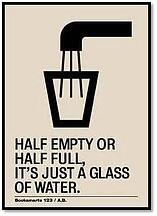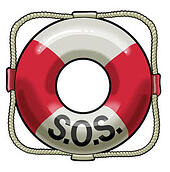
The secret to developing win/win solutions is to listen to the people closest to the problem, recognizing that their honest input and insight are vital to team effectiveness.
-John J. Murphy, Pulling Together
Michelle Nitchie | Sep 25, 2014 8:00:00 AM

The secret to developing win/win solutions is to listen to the people closest to the problem, recognizing that their honest input and insight are vital to team effectiveness.
-John J. Murphy, Pulling Together
Topics: Business Skills, Teamwork, Leadership and Management
Michelle Nitchie | Sep 11, 2014 8:00:00 AM
 I like to do this exercise with people starting a new business venture--it's a great way to troubleshoot any future problems. Basically, you're going to brainstorm potential mistakes you and/or your staff might make in the future. Be brutally honest: Where could you possibly screw up? What could go wrong if all hell broke loose? Then talk through how you would handle it. You are proactively avoiding these mistakes by anticipating them ahead of time. No one likes to imagine the "what-ifs," but it gives you greater piece of mind knowing you have a plan to handle them.
I like to do this exercise with people starting a new business venture--it's a great way to troubleshoot any future problems. Basically, you're going to brainstorm potential mistakes you and/or your staff might make in the future. Be brutally honest: Where could you possibly screw up? What could go wrong if all hell broke loose? Then talk through how you would handle it. You are proactively avoiding these mistakes by anticipating them ahead of time. No one likes to imagine the "what-ifs," but it gives you greater piece of mind knowing you have a plan to handle them.
-Tabatha Coffey, Own It!
Topics: Business Skills, Goals, Confidence, Managing Stress, Leadership and Management
Michelle Nitchie | Aug 28, 2014 8:00:00 AM
 Once you have established specific goals, ongoing coaching is essential to developing your employees. Enterprise [the car rental company] uses a coaching method known as SOS, which stands for "show, observe, and shape."
Once you have established specific goals, ongoing coaching is essential to developing your employees. Enterprise [the car rental company] uses a coaching method known as SOS, which stands for "show, observe, and shape."
-Kirk Kazanjian, Driving Loyalty
Topics: Business Skills, Goals, Leadership and Management
Michelle Nitchie | Aug 21, 2014 8:00:00 AM

I believe management has to fight to maintain standards every day. If a standard is not qualifiable (what you are supposed to do), quantifiable (when or how often you are supposed to do it), and verifiable (management can check to make sure it was done), it is not a standard. What are yours? And how are you communicating them? If employees don't know what you want and expect, they aren't going to deliver. I say it again: If standards are not being met, do not blame your employees or the economy. Blame management.
- Jon Taffer, Raise the Bar
Michelle Nitchie | Aug 14, 2014 8:00:00 AM
 Without factual information and timely, candid feedback, teams quickly dissolve into weak, dependent groups, shifting responsibility and ownership for problems to those who are informed. In many organizations, this results in a crippling "dependency syndrome," an upward delegation of problem-solving and conflict resolution. Got a problem? Give it to the boss to solve!
Without factual information and timely, candid feedback, teams quickly dissolve into weak, dependent groups, shifting responsibility and ownership for problems to those who are informed. In many organizations, this results in a crippling "dependency syndrome," an upward delegation of problem-solving and conflict resolution. Got a problem? Give it to the boss to solve!
- John J. Murphy, Pulling Together
Topics: Business Skills, Training, Teamwork, Leadership and Management
Michelle Nitchie | Jul 17, 2014 8:00:00 AM
 Part of looking ahead as a service provider is asking a simple but compelling question: What is happening that will affect my service business in the next year? From the information you collect in answer to this question, you can make assumptions that will help you anticipate the short-term future. The question should be asked about the following outside influences: the status of the local or national economy, a threatened strike in a related industry, the inflation rate, the status of major competitors, the economic well-being of a major industry or your client in that industry, a major technological innovation that may be either expected or unexpected.
Part of looking ahead as a service provider is asking a simple but compelling question: What is happening that will affect my service business in the next year? From the information you collect in answer to this question, you can make assumptions that will help you anticipate the short-term future. The question should be asked about the following outside influences: the status of the local or national economy, a threatened strike in a related industry, the inflation rate, the status of major competitors, the economic well-being of a major industry or your client in that industry, a major technological innovation that may be either expected or unexpected.
- Jean Withers and Carol Vipperman, Marketing Your Service
Topics: Business Skills, Analysis, Leadership and Management